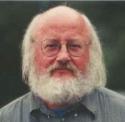
Biography:
Klaus Ammann has been the director of the Botanical Garden at the University of Bern since 1996. He has been a professor at the university since 2000. His research includes the chemotaxonomy and molecular systems of lichens, ecological monitoring, and gene flow and plant conservation in Europe. He is a member of a number of committees, including the coordination group of the European Science Foundation, the Biosafety Committee of the Government of Switzerland, and the GMO Expert Group of the European Commission Directorate General. He is chairman of the European Group of Plant Specialists in the World Conservation Union (IUCN).
Abstract:
Darwin was not a Darwinist: with his view of a dynamic, ever changing nature he was also creating the basis for modern agriculture
Darwins great mind, fully grounded in his lifelong activity observation in nature, created one of the important foundations of modern biology.
Actually a modest man, he was fully aware of the polyphyletic basis of the groundbreaking ideas of natural selection. As all truly innovative great researchers, Darwin also provoked misunderstandings: He did not, as usually understood, reduce his evolutionary thoughts to the struggle of organisms for survival his concept of the survival of the species was grounded in better fitness, which included also the strategy of collaboration, and he explicitly did not reduce evolution to variation (later in the wake of molecular biology understood as mutation) and selection. It happened to many great scholars that their ideas were subsequently reduced to orthodox doctrine by admiring pupils.
The upside of the shift in biology towards molecular perspectives is, that it is based and marvelously confirmed in Darwins evolutionary theory, the downside is, that the evolutionary mechanisms were reduced to mutation and selection. Although natural mutation (not differing in its processes from genetic engineering) acts strictly at random, this does not mean that auto-poesis can be ignored. Modern genetic analysis gives room to thoughts about environmental factors influencing the genome indirectly, and new insights in fractal mathematics and biomimetics leave some space for non-conformist thoughts about a still largely unknown and un-researched self-organization of the living beings, which is unjustifiably downsized by Darwinists to inner selection.
Nevertheless, Darwin has opened with his view of dynamic processes in nature the door to modern breeding of crops. Farmers have always seen crops as objects of change, this includes maize landraces in Mexico, conventional traits and in particular also crops created with molecular processes. It is a fundamental misunderstanding to distinguish strictly between non-molecular and molecular breeding methods, since all change in nature follows Darwins rules also on the molecular level of traditional and modern crops. There must be room for participative breeding and holistic views, combining modern insight in genomics with the best of traditional knowledge. It is time for organo-transgenic thought, making use of all promising strategies of agriculture, in order to produce more food on less available land.